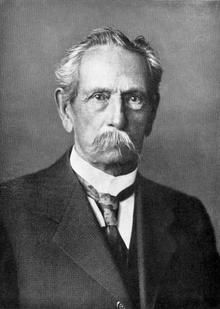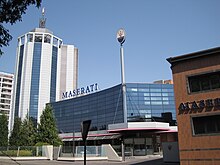The Cars Portal A car, or an automobile, is a motor vehicle with wheels. Most definitions of cars state that they run primarily on roads, seat one to eight people, have four wheels, and mainly transport people, not cargo. The French inventor Nicolas-Joseph Cugnot built the first steam-powered road vehicle in 1769, while the Swiss inventor François Isaac de Rivaz designed and constructed the first internal combustion-powered automobile in 1808. The modern car—a practical, marketable automobile for everyday use—was invented in 1886, when the German inventor Carl Benz patented his Benz Patent-Motorwagen. Commercial cars became widely available during the 20th century. One of the first cars affordable by the masses was the Ford Model T, begun in 1908, an American car manufactured by the Ford Motor Company. Cars were rapidly adopted in the US, where they replaced horse-drawn carriages. In Europe and other parts of the world, demand for automobiles did not increase until after World War II. The car is considered an essential part of the developed economy. Cars have controls for driving, parking, passenger comfort, and a variety of lamps. Over the decades, additional features and controls have been added to vehicles, making them progressively more complex. These include rear-reversing cameras, air conditioning, navigation systems, and in-car entertainment. Most cars in use in the early 2020s are propelled by an internal combustion engine, fueled by the combustion of fossil fuels. Electric cars, which were invented early in the history of the car, became commercially available in the 2000s and are predicted to cost less to buy than petrol-driven cars before 2025. The transition from fossil fuel-powered cars to electric cars features prominently in most climate change mitigation scenarios, such as Project Drawdown's 100 actionable solutions for climate change. (Full article...) Entries here consist of Good and Featured articles, which meet a core set of high editorial standards.
 The Maserati MC12 (Tipo M144S) is a limited production two-seater sports car produced by Italian car maker Maserati to allow a racing variant to compete in the FIA GT Championship. The car entered production in 2004, with 25 cars produced. A further 25 were produced in 2005 after the FIA changed the rules and reduced the maximum length allowed. The second batch of 25 are 150mm shorter than the originals, making a total of 50 cars available for customers. With the addition of 12 cars produced for racing, a total of just 62 were ever produced. Maserati designed and built the car on the chassis of the Ferrari Enzo, but the final car is much larger and has a lower drag coefficient, along with being longer, wider and taller and has a sharper nose and smoother curves than the Enzo. The Enzo had quicker acceleration, shorter braking distance, and a higher top speed at 350 km/h (217 mph), 20 km/h (12 mph) more than the MC12. (Full article...)Selected article -
Maserati S.p.A. (Italian: [mazeˈraːti]) is an Italian luxury vehicle manufacturer. Established on 1 December 1914 in Bologna, Italy, the company's headquarters are now in Modena, and its emblem is a trident. The company has been owned by Stellantis since 2021. Maserati was initially associated with Ferrari. In May 2014, due to ambitious plans and product launches, Maserati sold a record of over 3,000 cars in one month. This caused them to increase production of the Quattroporte and Ghibli models. In addition to the Ghibli and Quattroporte, Maserati offers the Maserati GranTurismo and two SUV models, the Maserati Levante (the first ever Maserati SUV) and the Maserati Grecale. Maserati has placed a yearly production output cap at 75,000 vehicles globally. (Full article...)
Selected picture of the day
Selected biography - Carl (or Karl) Friedrich Benz (German: [kaʁl ˈfʁiːdʁɪç ˈbɛnts] ⓘ; born Karl Friedrich Michael Vaillant; 25 November 1844 – 4 April 1929) was a German engine designer and automotive engineer. His Benz Patent Motorcar from 1885 is considered the first practical modern automobile and first car put into series production. He received a patent for the motorcar in 1886, the same year he first publicly drove the Benz Patent-Motorwagen. His company Benz & Cie., based in Mannheim, was the world's first automobile plant and largest of its day. In 1926, it merged with Daimler Motoren Gesellschaft to form Daimler-Benz, which produces the Mercedes-Benz among other brands. (Full article...)On this day May 18
Did you know...
Selected quote of the dayThe client is not always right TopicsGeneral imagesThe following are images from various car-related articles on Wikipedia.
CategoriesThings you can do to help If you wish to help, you can:
Associated WikimediaThe following Wikimedia Foundation sister projects provide more on this subject:
Discover Wikipedia using portals |








































































